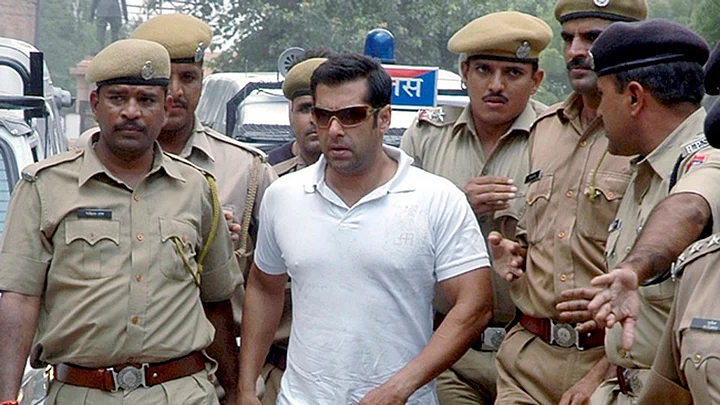I pity the poor immigrant
Who tramples through the mud
Who fills his mouth with laughing
And who builds his town with blood
Whose visions in the final end
Must shatter like the glass
I pity the poor immigrant
When his gladness comes to pass
From “I pity the poor immigrant” by Bob Dylan
In 2006, soon after Allister Pereira drove over 13 immigrant workers on a Bandra pavement, killing seven, the leading paper in the nation asked me, as the head of a residents’ association in Carter Road where the accident occurred, why they were sleeping in the pavement.
I replied that we, as residents, didn’t pay them enough to enable them to have a roof over the heads. But why weren’t they sleeping in the sheds provided, the reporter persisted.
I replied that in a tropical country, it wasn’t very pleasant to sleep in a tin shed without any windows, but then asked: “Are you blaming the victims for the accident?” Needless to say, not a line of mine appeared.
What About Drunk Motorists?
I could have added, do motorists have a right to drive over pavements, all the more so when they are drunk? And today, after they have been twice warned to drive slowly by a constable bodyguard?
I recalled this interaction after hearing Bollywood personalities Abhijeet Bhattacharya and Farah Ali Khan’s obscene remarks about Salman’s victims sleeping on the pavement, what is being termed their “Marie Antoinette” moment.
These expose the amorality of Bollywood which lives in a hedonistic and narcissistic cocoon of its own, as well as the insensitivity of the well-to-do to the homeless literally at their doorstep. Many of Mumbai’s rough sleepers, like in Pereira’s and Salman’s cases, were migrants, the poorest of the poor.
Mumbai’s pavement dwellers became a cause célèbre in 1981 when the then chief minister A R Antulay ordered the demolition of their ramshackle dwellings. Three journalists – Olga Tellis, Praful Bidwai and the late Ivan Fera, representing two civil liberties organisations – filed cases against the state government.
SC’s Dickensian Strictures
The case eventually went up to the Supreme Court, which in 1985 opined that pavement dwellers had no right to squat on the pavement. In tones reminiscent of Victorian censoriousness, the judges stated: “They work and sleep where they ease, for no conveniences are available for them. Their daughters come of age, bathe under the nosy gaze of passers-by, unmindful of the feminine sense of bashfulness. The cooking and washing over, women pick lice from each other’s hair. The boys beg, menfolk without occupations snatch chains with the connivance of the defenders of law and order. When caught, if at all they say: ‘Who doesn’t commit crimes?’”
Despite such Dickensian strictures, the court prohibited evictions during the monsoon and ordered the Maharashtra government to provide alternative accommodation for those listed in a 1976 “cut-off” census.
During the case, it was pointed out that Mumbai had some 4 million slum dwellers and 4 lakh – a tenth as many – pavement dwellers. It required 4,000 hectares to rehouse all of them; Godrej alone had 3,000 vacant hectares in Vikhroli, much of this empty to this day.
No Place for Marginalised Migrants?
At the very least, the authorities must think of some out-of-the-box solutions to provide night shelters to the really marginalised, migrants who are even worse off than those who are housed however atrociously in slums.
The eminent Mumbai architect Charles Correa once advised the state government to create a 7-ft wide raised stone plinth between the pavement and road that could be used by street traders during the day and hosed down by night as a sleeping place for the homeless. Many of Mumbai’s pavements, however, are now being removed or reduced to accommodate the ever-burgeoning number of cars.
At the Urban Age conference in Delhi last November, Harsh Mander cited how a poor migrant explained that the reason he slept on the road divider – even riskier than the pavement – was that traffic fumes kept mosquitoes at bay. In the current media blitz on Delhi’s deadly air pollution, a sobering reminder that the worst off might even find the fumes a nocturnal comfort.
They are playing Russian roulette: an omnipresent possibility of being killed or maimed – possibly by an inebriated driver – over a slower death by clogging their lungs.
Mander also asked why state-run schools, which run only eight hours a day, can’t be thrown open with minimal make-over as night shelters. Like so many other sensitive, innovative and inexpensive ideas, these find no place in smart cities.
(The author is a senior Mumbai-based journalist.)
